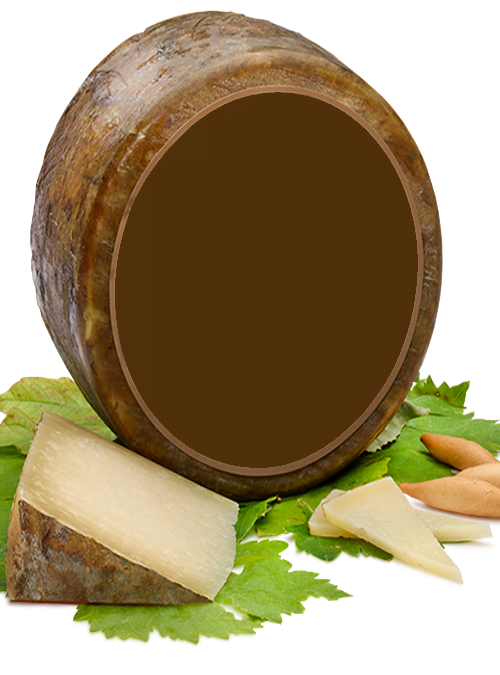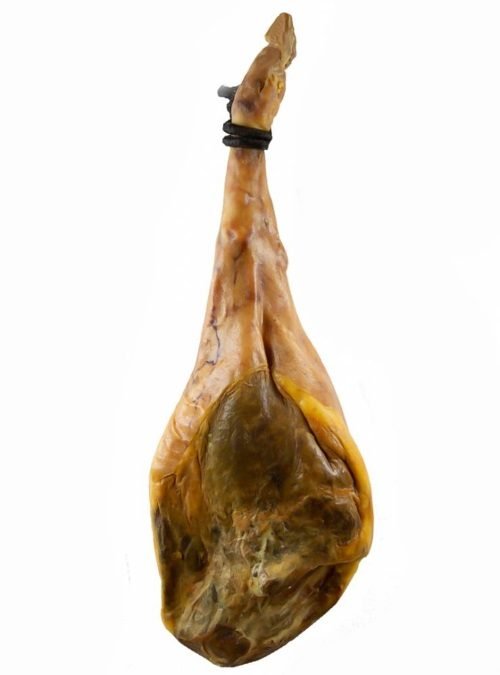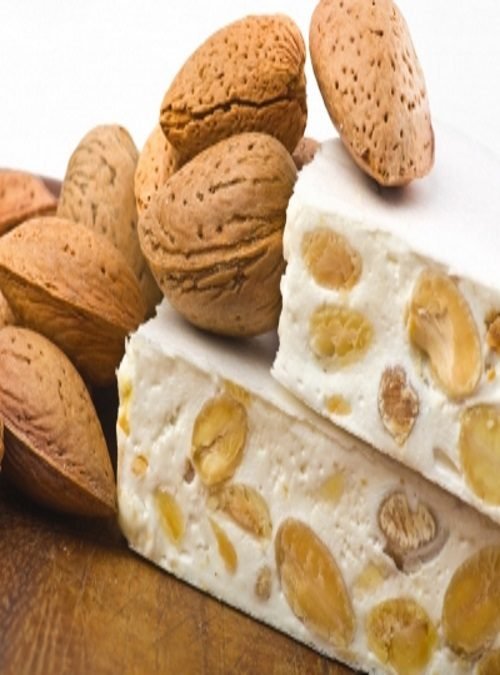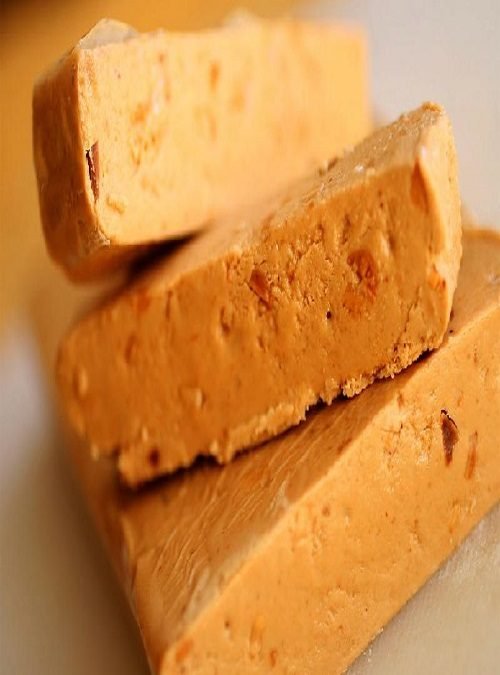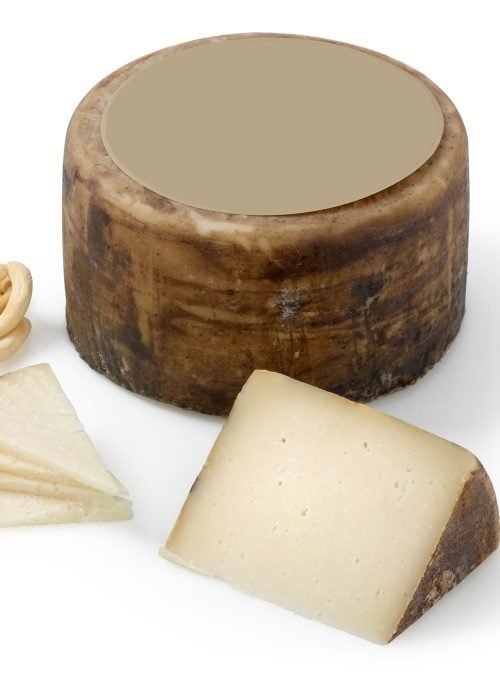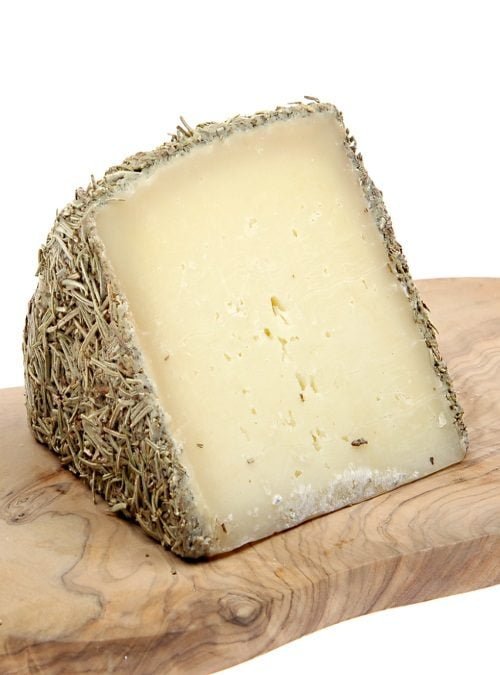- An artisan cow and sheep milk cheese cured for 8 months.Artisan Cheese: Authentic cured Castilian cheese, with a characteristic aroma and flavor. Cheese made with raw cow and sheep milk, cured in the cellar for three months.History dates back to the 19th century, when in 1880 the French expert Claude Napoleón arrived in Reinosa, Cantabria, and installed the first French-type cheese factory in Spain (Port Salut and Camembert), which he called La Reinosa.Two years after its inauguration His Majesty King D. Alfonso XII granted by Royal Order Claude Napoleon "the honors of the Royal House provider, with the use of the Royal Arms shield".
- The Iberian loin tenderloin is one of the gastronomic references of Spain. The loin is obtained from pure Iberian pigs fed exclusively with acorns. A rich and healthy product that is part of the Mediterranean diet. Made from a selection of the best purebred Iberian pigs raised free in the "Dehesas" of the Iberian Peninsula.Pure Iberian Acorn Loin
- Extra virgin olive oil of superior quality certified by the Regulatory Council of the Sierra of Jaen Denomination of Origin and always of the last harvest.Obtained of "picual" olives of high mountain cultivated of traditional form and by means of a process of the first extraction to less than 27ºC / 80.6ºF.Most of the olive trees to obtain this oil are centenarian, rainfed and planted at high altitude (even above 1,200 meters), which gives their oil a higher concentration of oleic acid, polyphenols and natural antioxidants beneficial to health, and that is responsible for its delicious taste somewhat bitter and spicy.
- This product is served wrapped in cotton mesh, in a cardboard box.
- Ham obtained by selecting the fattest pieces. It usually has a characteristic veining (infiltrated fat) inside, especially in the part of the club.
- Soft flavor and intense aroma which makes it a product valued by the most exquisite palates.
- Its uniform curing due to its content of infiltrated fat and its slow cure in cellars, makes it easy to cut and great performance, being oblivious to hardness and shortening.
- This product is served wrapped in cotton mesh, in a cardboard box.
- It is a delicacy, a pure joy to the palate that has such rich history: this delicious creation is called turrón or, in other words, Spanish nougat. It is the result of a clever blend of honey, sugar, egg white, and almonds or hazelnuts. Simple and natural ingredients, abundantly available in the Mediterranean basin.The two main varieties of Spanish turrón are: the turrón de Jijona, which is the soft nougat, and the turrón de Alicante which is the hard nougat.Modernly the name turrón has widened its meaning in Spain to include many other sweet preparations that have in common with traditional turrón being sold in bars of around 20 x 10 x 3 cm. These bars can feature chocolate, marzipan, coconut, caramel, candied fruit, and many other ingredients.
- It is a delicacy, a pure joy to the palate that has such rich history: this delicious creation is called turrón or, in other words, Spanish nougat. It is the result of a clever blend of honey, sugar, egg white, and almonds or hazelnuts. Simple and natural ingredients, abundantly available in the Mediterranean basin.The two main varieties of Spanish turrón are: the turrón de Jijona, which is the soft nougat, and the turrón de Alicante which is the hard nougat.Modernly the name turrón has widened its meaning in Spain to include many other sweet preparations that have in common with traditional turrón being sold in bars of around 20 x 10 x 3 cm. These bars can feature chocolate, marzipan, coconut, caramel, candied fruit, and many other ingredients.
- LOT Ibericos Sliced
- 3 - Envelopes, Iberian bait ham 100 gr.
- 3 - Envelopes, Iberian bait loin 100 gr.
- 3 - Envelopes, Iberian bait chorizo 100 gr.
- 3 - Envelopes, Iberian bait Salchichón 100 gr.
- An artisan cow and sheep milk cheese cured for 18 months.Artisan Cheese: Authentic cured Castilian cheese, with a characteristic aroma and flavor. Cheese made with raw cow and sheep milk, cured in the cellar for three months.History dates back to the 19th century, when in 1880 the French expert Claude Napoleón arrived in Reinosa, Cantabria, and installed the first French-type cheese factory in Spain (Port Salut and Camembert), which he called La Reinosa.Two years after its inauguration His Majesty King D. Alfonso XII granted by Royal Order Claude Napoleon "the honors of the Royal House provider, with the use of the Royal Arms shield".
- Cheese made with aged sheep's milk and cured with Manchego rosemary leaves. It offers an irresistible flavor with a rosemary aroma that makes it different and original. The rosemary is collected in the mountains of La Mancha region, Spain, which gives it an unbeatable distinction and class.D.O.P. Queso Manchego Pressed cheese made from sheep milk of the Manchega breed, with a minimum maturity of 30 days, for cheeses with a weight equal to or less than 1.5 Kg and 60 days, for the rest of the formats, and a maximum of two years.It has an intense and persistent lactic, acidified smell that evolves to spicy nuances in the most cured with long global persistence. The taste is acidic, strong and tasty that becomes spicy in very cured cheeses. Pleasant and peculiar residual taste conferred by La Mancha milk. Low elasticity, with a buttery and somewhat floury sensation, which can be grainy in the very mature.
- Artisan sheep cheese in extra virgin olive oil, made with raw sheep milk.After maturation in cellars, it is immersed in oil for a minimum of 5 months.D.O.P. Queso Manchego Pressed cheese made from sheep milk of the Manchega breed, with a minimum maturity of 30 days, for cheeses with a weight equal to or less than 1.5 Kg and 60 days, for the rest of the formats, and a maximum of two years.It has an intense and persistent lactic, acidified smell that evolves to spicy nuances in the most cured with long global persistence. The taste is acidic, strong and tasty that becomes spicy in very cured cheeses. Pleasant and peculiar residual taste conferred by La Mancha milk. Low elasticity, with a buttery and somewhat floury sensation, which can be grainy in the very mature.
- Caviar “Classic” was obtained from an individual of the Siberian sturgeon 6-8 years old. This is a fairly adult and large fish and caviar from it is obtained with a rich and vibrant taste. Medium-sized caviar is about 3 mm; an ambassador of 3.5 grams of salt per kg is a standard, classic ambassador.Caviar does not creep on a sandwich but looks like a single consistency, eggs to eggs. The ambassador is close to the one used during the Soviet era. A product for those who like caviar saltier. Caviar does not pass pasteurization, which means that the liquid between the eggs does not evaporate and the taste remains the same.Downhole type caviar, respectively, soft eggs, literally melt in the tongue.
- Ingredients: Siberian sturgeon caviar, salt, sorbic acid, ascorbic acid, is ascorbic acid
- Caviar Type: granular, not pasteurized
- Storage conditions: - At +4 (in the refrigerator) - up to 14 days - At -4 - up to 2.5 months - At -18 (freezer) - up to 9 months
- Caviar “Classic” was obtained from an individual of the Siberian sturgeon 6-8 years old. This is a fairly adult and large fish and caviar from it is obtained with a rich and vibrant taste. Medium-sized caviar is about 3 mm; an ambassador of 3.5 grams of salt per kg is a standard, classic ambassador.Caviar does not creep on a sandwich but looks like a single consistency, eggs to eggs. The ambassador is close to the one used during the Soviet era. A product for those who like caviar saltier. Caviar does not pass pasteurization, which means that the liquid between the eggs does not evaporate and the taste remains the same.Downhole type caviar, respectively, soft eggs, literally melt in the tongue.
- Ingredients: Siberian sturgeon caviar, salt, sorbic acid, ascorbic acid, is ascorbic acid
- Caviar Type: granular, not pasteurized
- Storage conditions: - At +4 (in the refrigerator) - up to 14 days - At -4 - up to 2.5 months - At -18 (freezer) - up to 9 months

